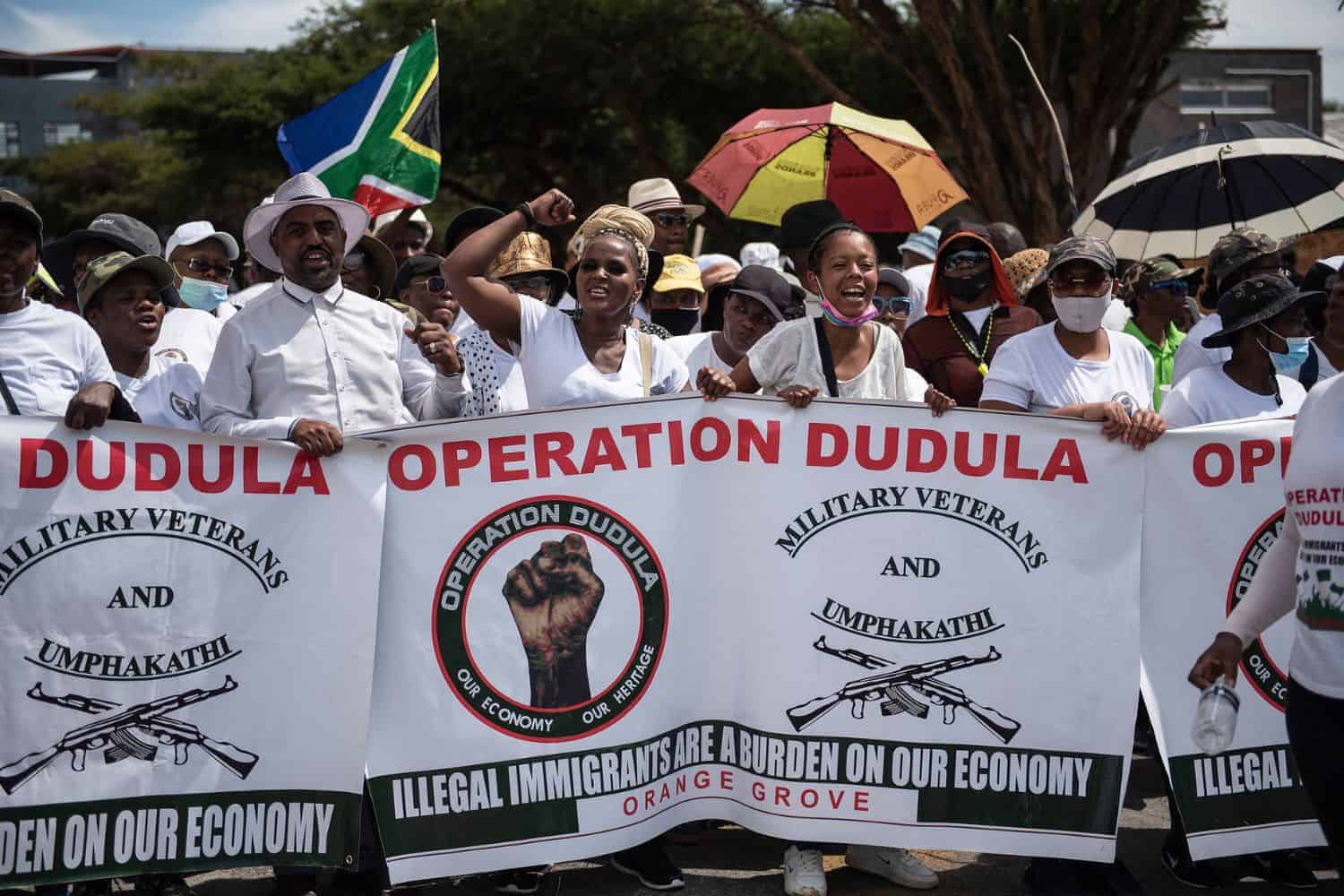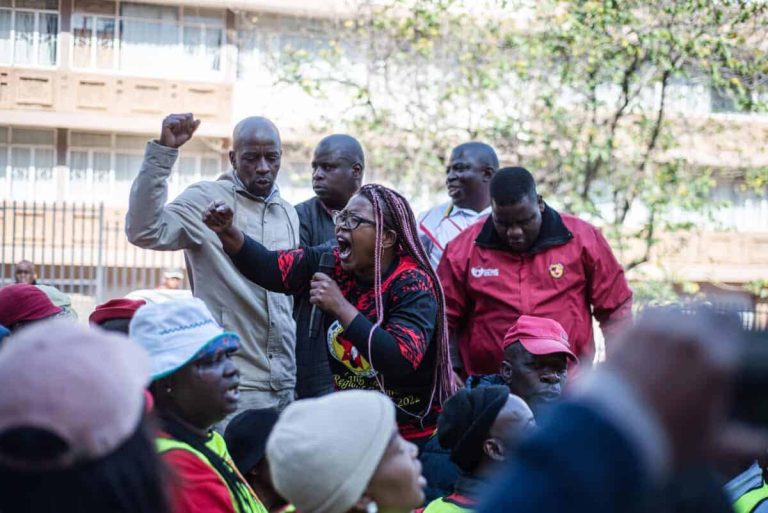
The Gauteng High Court in Johannesburg has barred Operation Dudula from blocking foreign nationals when they attempt to access healthcare services or schools.
The ruling follows a 2023 application brought by several civil society organisations — on behalf of Kopanang Africa Against Xenophobia (KAAX), the South African Informal Traders Forum (SAITF), the Inner City Federation (ICF), and Abahlali BaseMjondolo.
The main part of the application was heard in June this year.
The organisations, represented by the Socio-Economic Rights Institute of South Africa (Seri), sought to stop Operation Dudula from engaging in unlawful and discriminatory activities.
The applicants requested the court to order the South African Police Service (Saps) to investigate alleged crimes committed by Operation Dudula members.
The non-governmental organisations (NGOs) also sought an order compelling the government to implement its plans addressing racism and xenophobia.
High court issues interdict against Operation Dudula
Delivering his judgment on Tuesday, Judge Leicester Adams found that Operation Dudula had acted unlawfully by preventing foreign nationals from receiving treatment at public hospitals and clinics.
He clarified that the authority to request proof of legal status in South Africa rests solely with immigration or police officers.
“No private person has the power to do so unless expressly so authorised by law,” the judgment reads.
Adams issued a broad interdict against Operation Dudula, the police, and other authorities, restraining them from intimidating, harassing, or assaulting people they regard as foreign nationals.
READ MORE: Operation Dudula wants to know why organisations prioritise foreign nationals
The order further forbids the respondents from making or sharing any statements that constitute hate speech on the basis of nationality, social origin, or ethnicity — including at public events, on social media, or by any other means.
The court also ruled that Operation Dudula is prohibited from obstructing foreign nationals’ access to healthcare facilities or interfering with the functioning of schools.
This includes any form of intimidation or harassment directed at learners, teachers, or parents.
In addition, the judgment bars the organisation from unlawfully evicting foreign nationals from their homes or forcing them out of their shops and businesses.
Adams went on to interdict Operation Dudula from instigating, promoting, or encouraging anyone to commit any of the actions prohibited by the order — whether online, during gatherings, or through other forms of communication.
Court ruling welcomed
Seri’s litigation director, Nkosinathi Sithole, described the ruling as a significant victory — not only for their clients, but also for the principles upheld by the South African Constitution.
“It is very important that it has come to this, considering what we have been seeing is dastardly criminal conduct by Operation Dudula of blocking people from facilities,” Sithole told eNCA.
He highlighted that the judgment makes it clear that the Minister of Police and the Minister of Home Affairs are required to ensure they do not turn a blind eye to Operation Dudula’s unlawful activities.
“When Operation Dudula does these conduct, they have to arrest them,” Sithole said.
Sithole further emphasised that state authorities cannot simply enter people’s homes and carry out raids without following due process.
He stressed that law enforcement must first obtain proper search and arrest warrants.
“In public, they need to have a clear, reasonable suspicion that someone is an undocumented foreign national before they can ask for such identity documents,” Sithole added.



